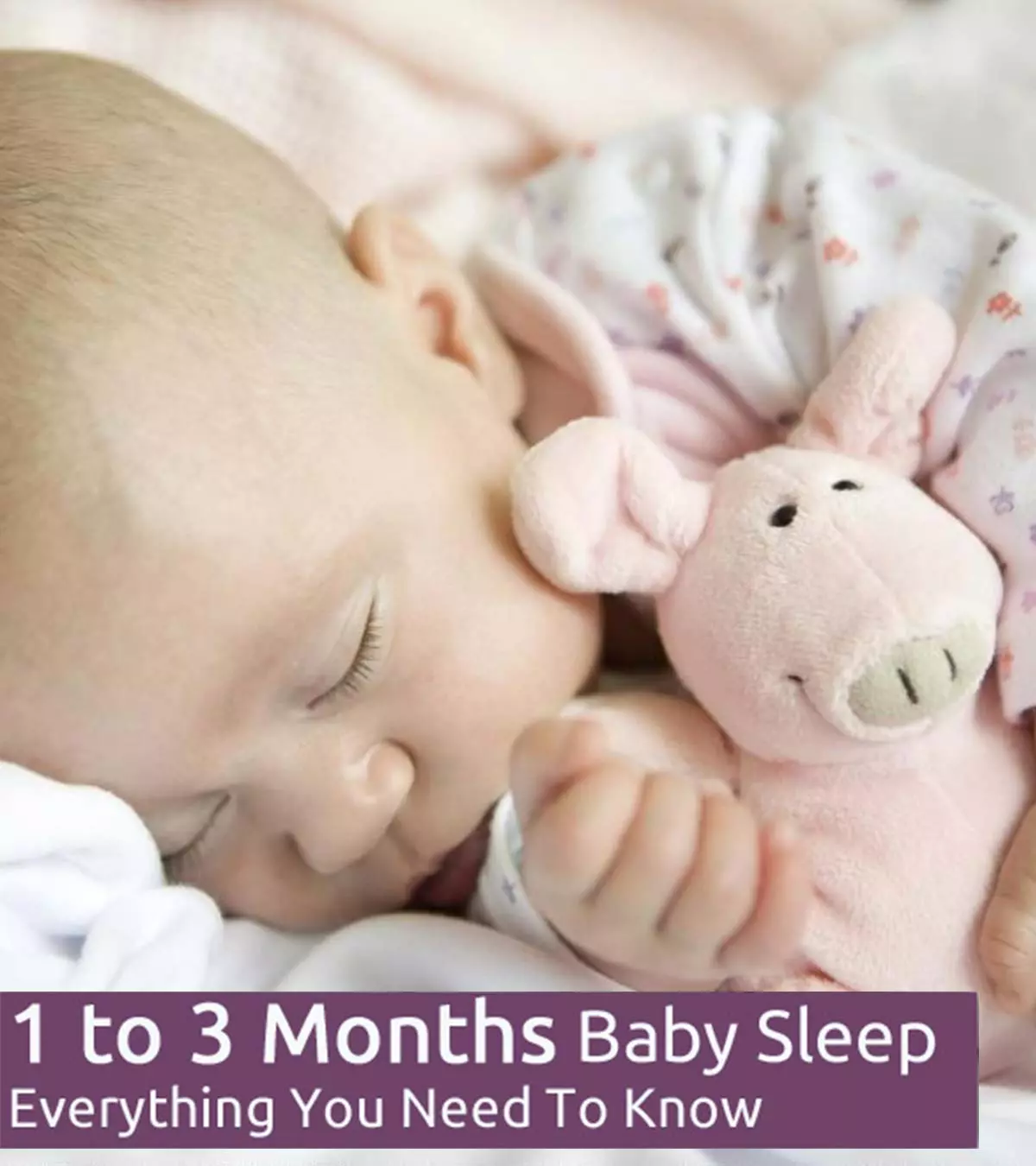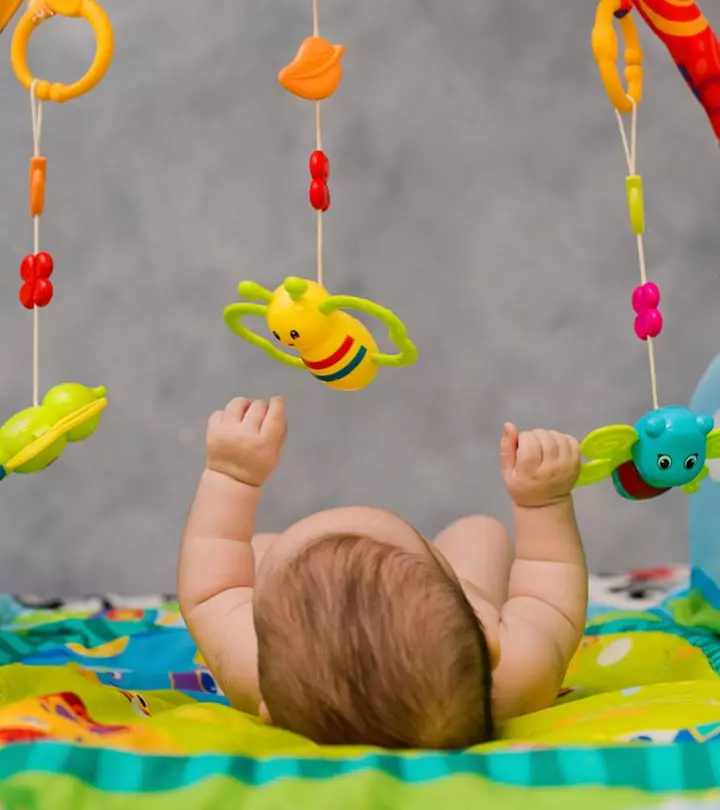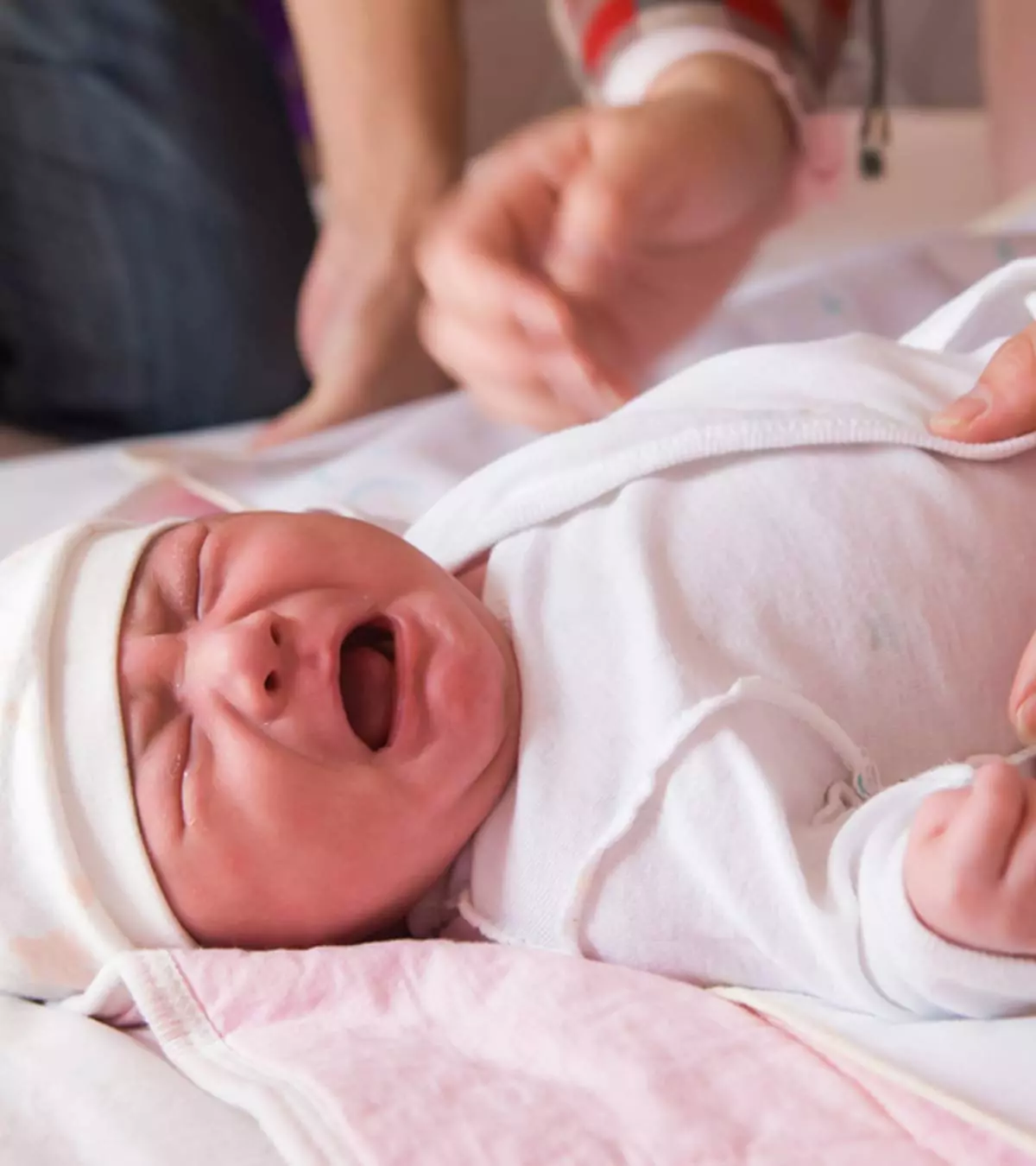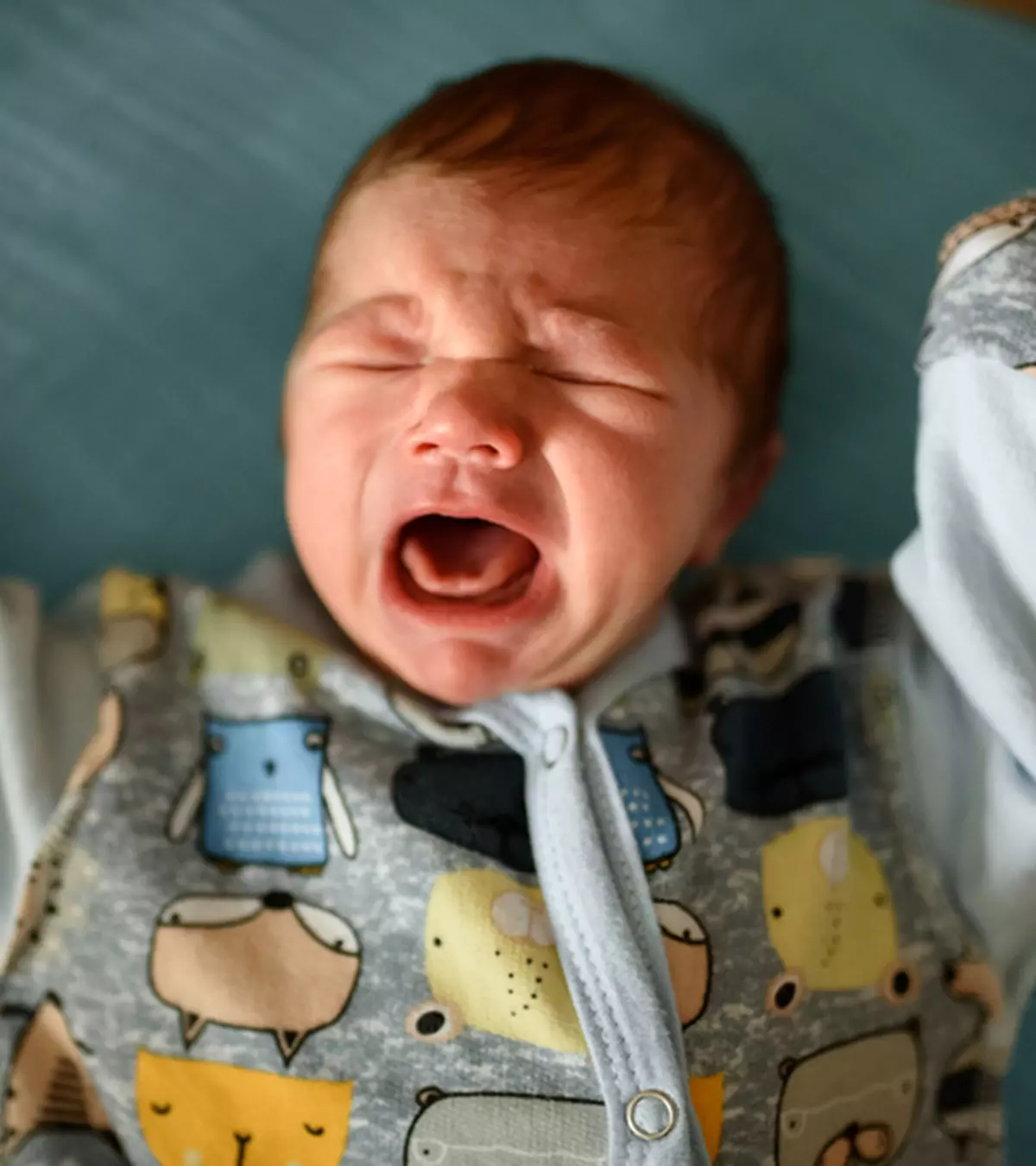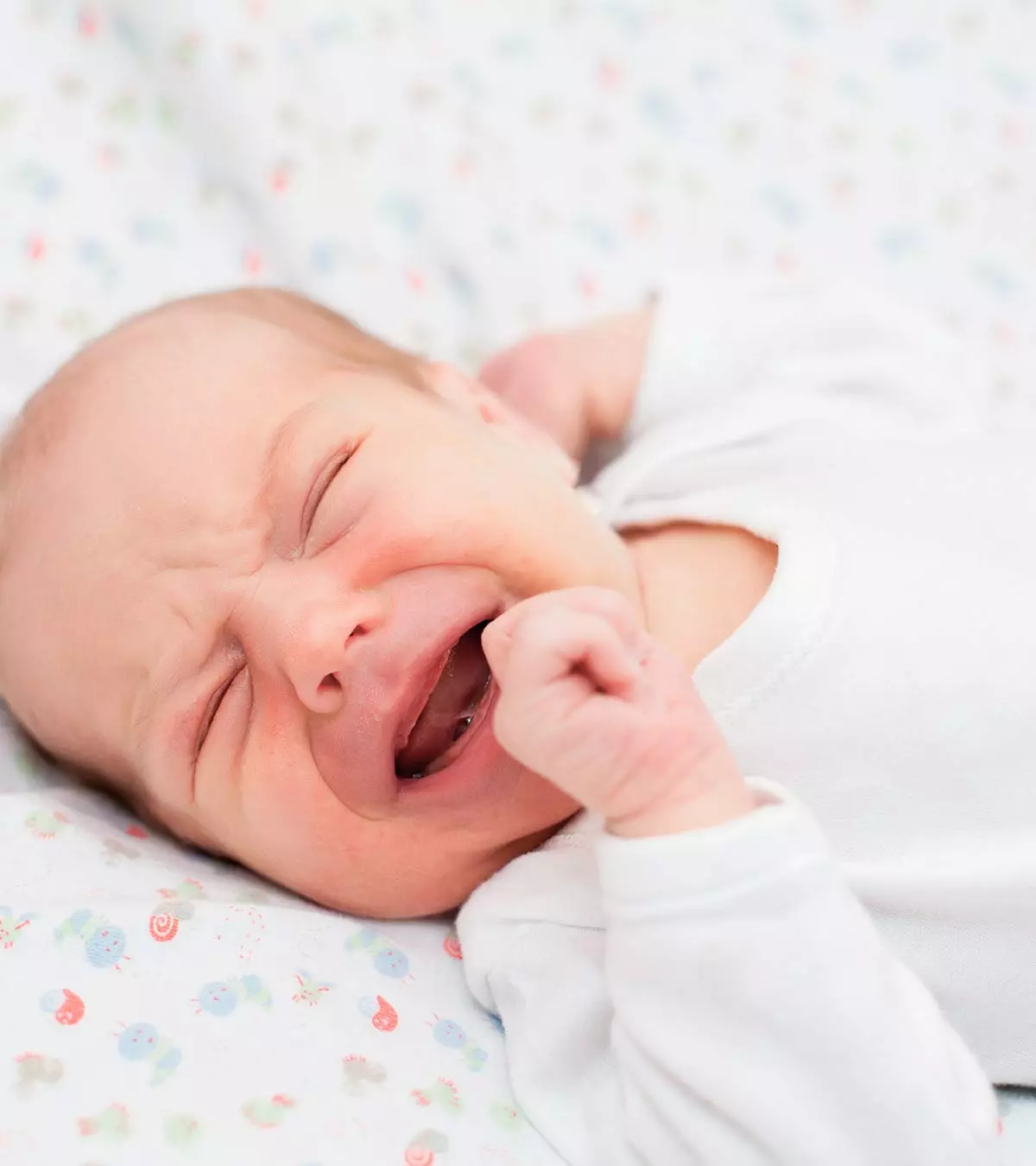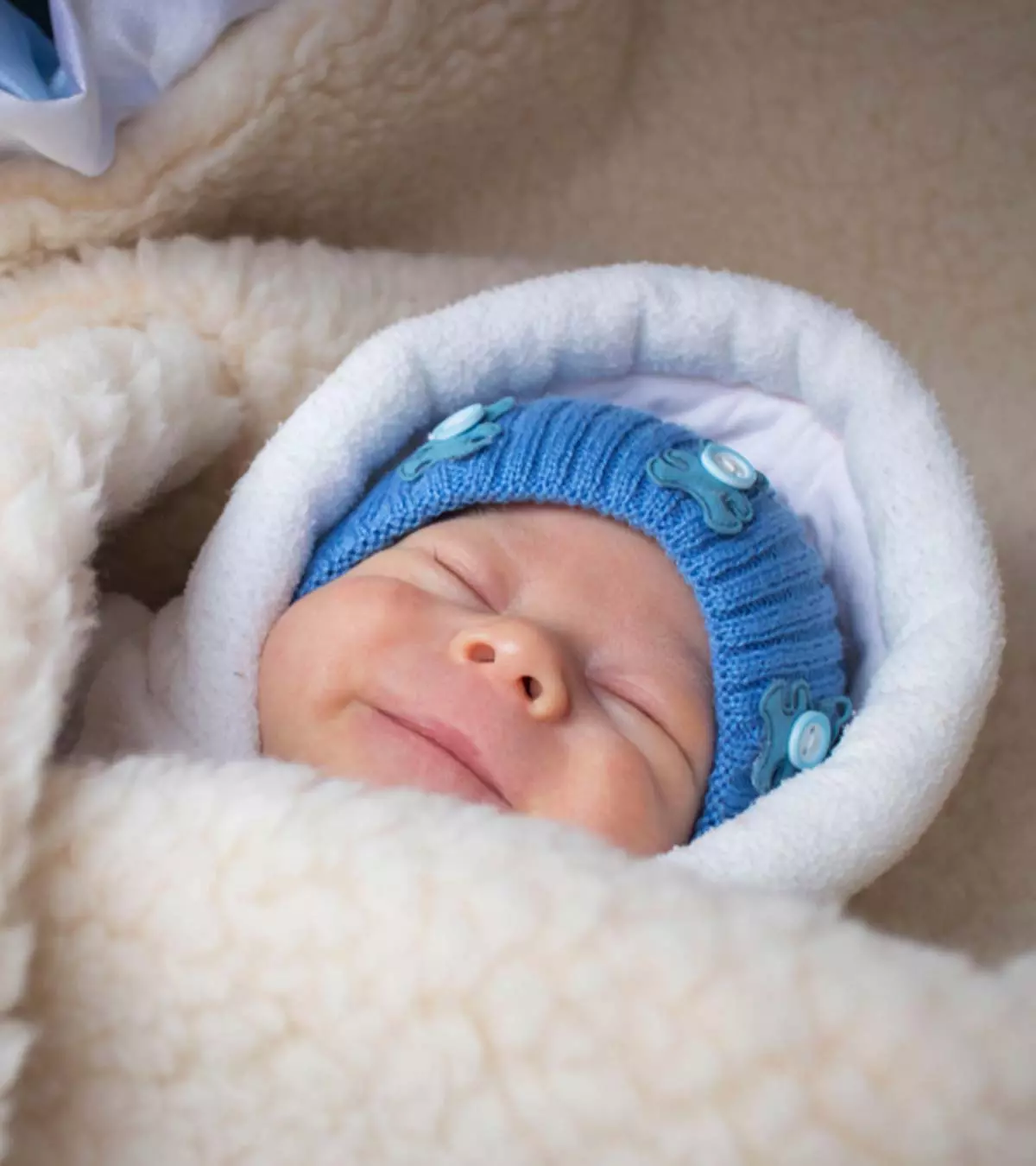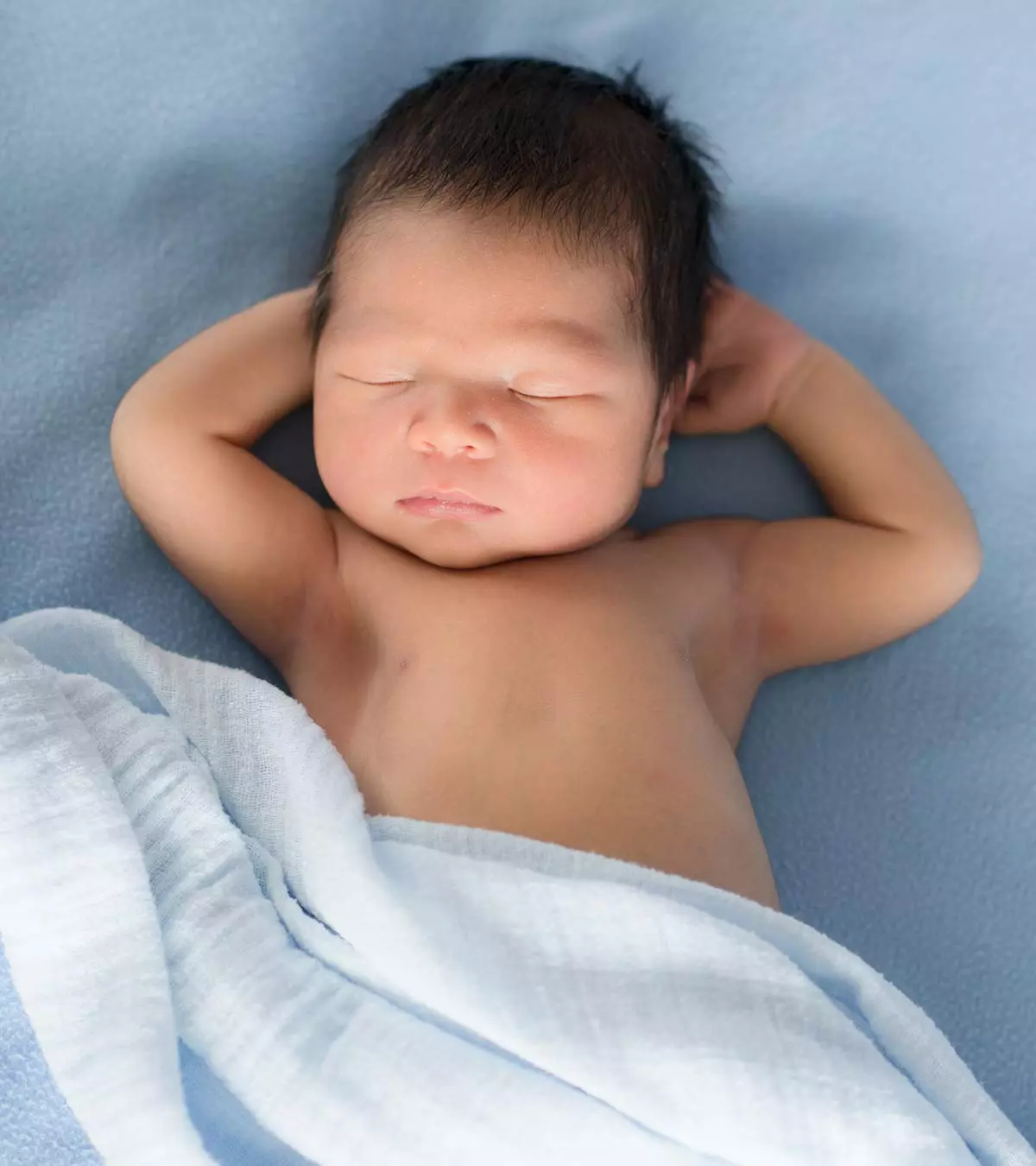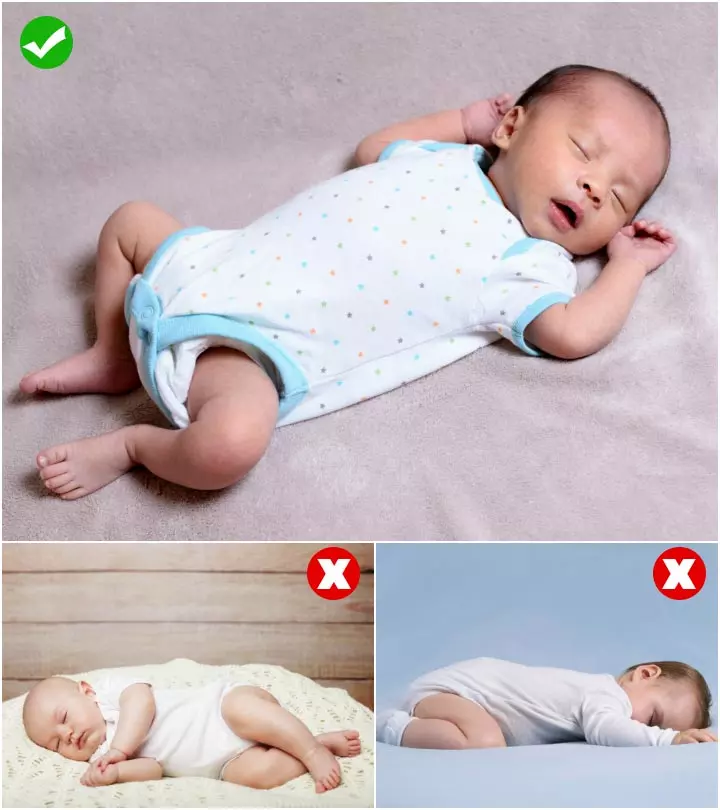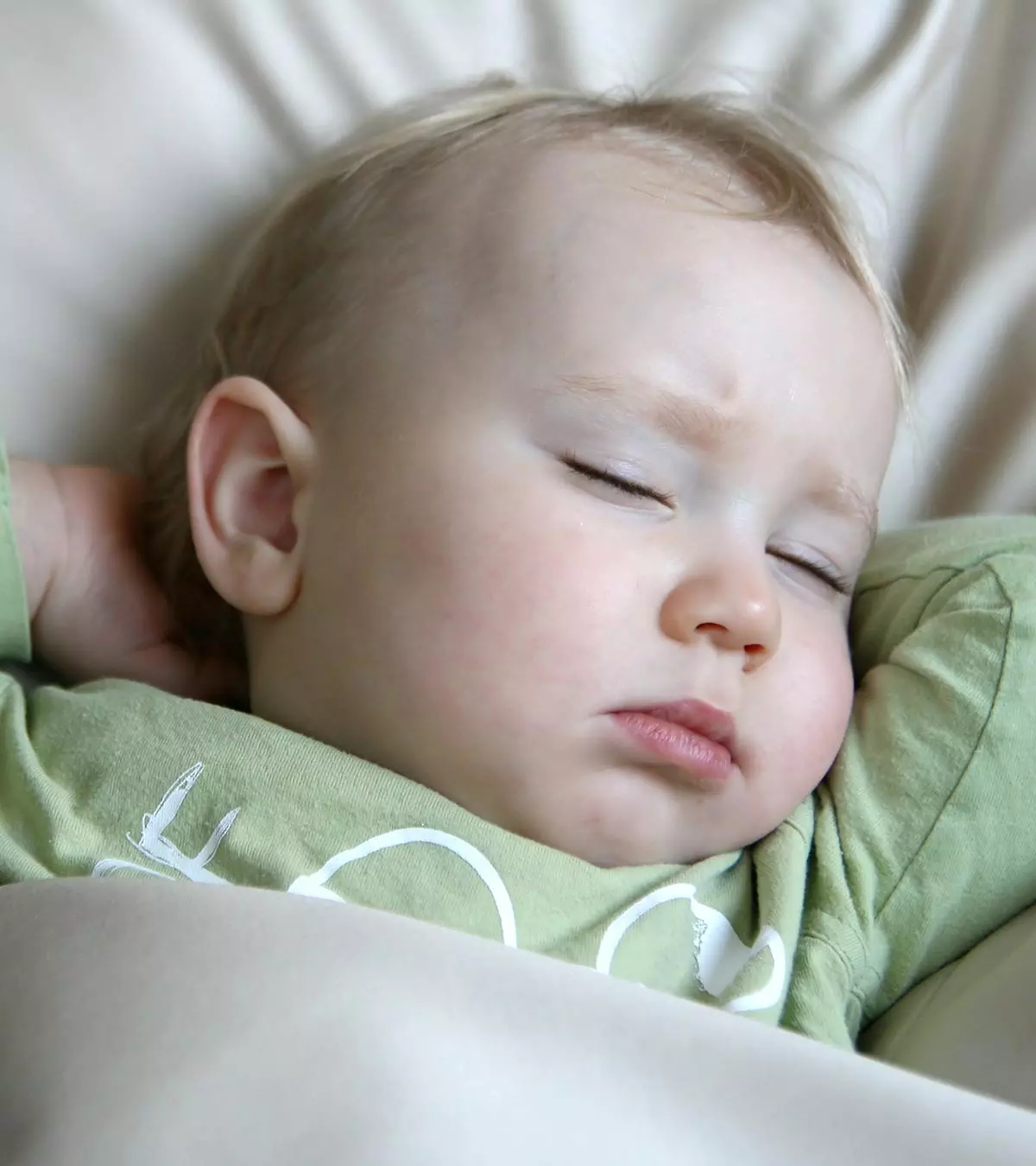
Like in other sleep regression stages, sleep regression in 18-month-old babies is triggered by a developmental phase where the baby’s sleep patterns change to cognitive leaps. A baby who has been sleeping well will suddenly refuse to go to sleep or wake up fussy in the middle of the night.
Though the phase is temporary and often resolves within a week, managing a baby can be more challenging during this age since they can get out of their crib and walk around. Also, they can now express their wishes more firmly than before. Therefore, during a regression episode, an 18-month-old may sit up and cry loudly, resisting going back to sleep, or they may silently walk out of their crib and roam around unsupervised, raising the risk of mishappenings.
 Quick fact
Quick factRead on to know more about the possible causes of 18-month-old sleep regression, how long it lasts, and tips to help parents manage the regression phase.
Key Pointers
- The 18-month old sleep regression may last for two to six weeks.
- Frequently waking up at night, increased bedtime tantrums, loss of appetite, etc., are signs of sleep regression.
- An 18-month-old baby may need eleven to fourteen hours of sleep every day.
What Causes Sleep Regression In An 18-month-old?
Changes in sleep patterns are part of growth and development. The following situations may lead to sleep regression in 18-month-old babies.
1. Growth and development
Changes in brain development may cause temporary sleep regression or changes in the usual sleep patterns of an 18-month-old. The child may experience sleep disturbances, resulting in a reduction in the duration of sleep or a disruption in their sleep pattern.
You may notice that phases marked by the achievement of physical and cognitive milestones are often associated with sleep regressions. You may also notice new teeth or an increase in height during the sleep regression period. The mother may specifically report the discomfort caused by teething. The varying amounts of growth hormones in the baby’s body could be the reason.
2. Separation anxiety
Some babies may develop sleep regression due to separation anxiety
Although it is a part of their social and emotional growth, separation anxiety may cause sleep changes in a baby if caregivers or parents leave them to sleep alone.
Your baby may sleep around you and be more clingy than usual when they experience sleep deprivation due to fear of being away from parents (1).
3. Increased independence

Image: Shutterstock
Some babies may have a strong desire for independence at this age and tend to play or do something else rather than sleep. They may also try to protest by crying or through other ways when you ask them to sleep on a regular time.
How Long Will The Sleep Regression Last?
Duration of sleep regression may vary in each child. It usually lasts two to six weeks, and your baby will gradually revert to regular sleeping patterns (1). The parent complains to the doctor that the child does not sleep or keeps awake for hours, leading to exhaustion and frustration.
A few babies may experience sleep regression for shorter periods, while some may not experience it at all.
What Does An 18-month-old’s Sleep Regression Look Like?
The baby may show the following behavior during the 18-month sleep regression.
- Waking up at night
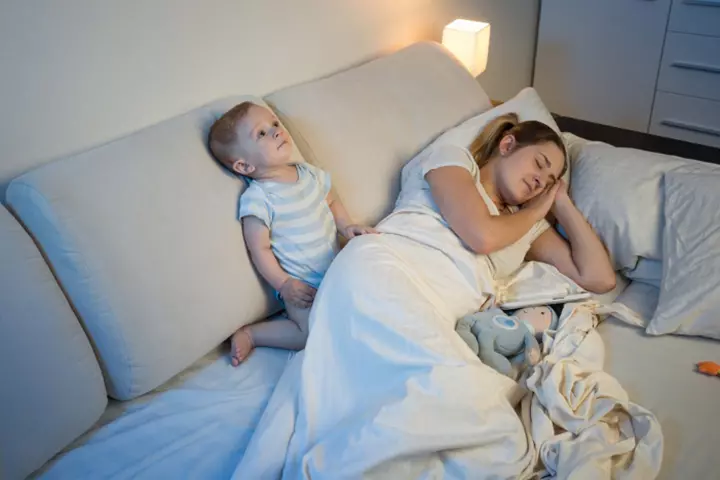
Image: Shutterstock
- Altered sleep pattern like awake at night and sleeping in day
- Waking up too early
- Bedtime tantrums
- Increased shorter naps
- Crying and fussiness
- Appetite changes. Not eating well
- Clinginess and asking more cuddles
Some babies may play, call you, or talk during their bedtime. This is a normal part of development, and babies outgrow it eventually.
How Many Hours Of Sleep Is Needed For An 18-month-old Baby?
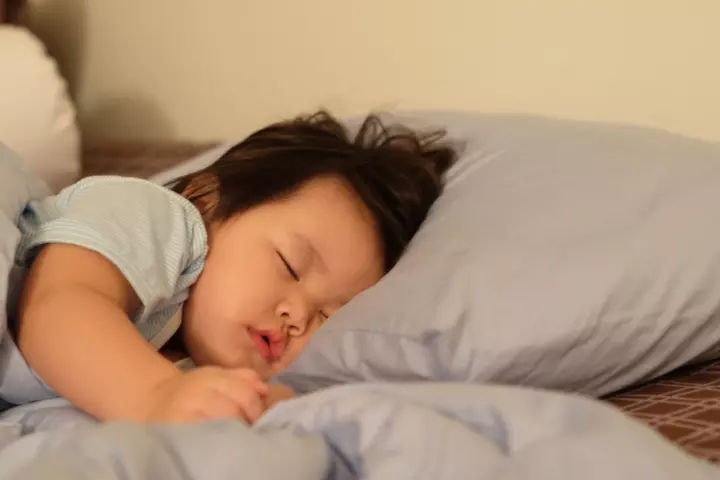
Image: Shutterstock
Eleven to fourteen hours of daily sleep is required for an 18-month-old baby (2). It can be split into a longer duration (10 to 12 hours) of night sleep with a few hours (two to four hours) of naps during the day.
Although sleep needs may vary in babies, all of them require enough sleep to be healthy, even when they have sleep regression. Insufficient sleep may exacerbate tantrums and cranky behavior in babies (3).
The American Academy of Sleep Medicine recommends following a consistent sleep schedule at every stage of development to promote children’s psychological and physical well-being, as insufficient sleep can have adverse effects. The graph below illustrates the recommended sleep duration for children at different developmental stages. According to the graphical representation, the amount of sleep a child needs decreases with age. It means babies and toddlers need more sleep than grade schoolers and teens.

How much sleep do kids need?
Source: Healthy Sleep Habits: How Many Hours Does Your Child Need?; American Academy of Pediatrics/The American Academy of Sleep Medicine (AASM) Research finds
Research findsSleep Tips For 18-month-old Babies
The following sleep tips may help your baby fall asleep during the 18-month sleep regression phase (4).
- Let your baby follow certain bedtime routines, such as reading bedtime stories or having a bath. It can relax them and prepare them for bedtime.
- Place the baby in the crib when they feel drowsy rather than wait for them to fall asleep in your arms. It can help them fall asleep sooner and sleep better. It may also let you observe and determine when your baby tends to fall asleep.
- Avoid screen time a few hours before bedtime or naptime. Do not allow more than an hour of screen time in a day (5).

Image: Shutterstock
- You can provide a safe and comfortable bedtime toy to the baby. It may help the baby fall asleep again if they wake up at night.
- Adjust the sleep schedule of the baby during sleep regressions. For instance, place the baby to bed earlier at night or try extra naps during the day.
- Feed the baby adequately before bedtime so that they do not wake up due to hunger.
- Have a soothing night light in your baby’s room so that they can fall asleep easily.
- You can place the baby’s crib close to your bed in your bedroom so that you are always within their line of sight. Room-sharing can make it easier for you to comfort them back to sleep if they wake up at night.
You can reinforce good sleep habits to an 18-month-old if they have sleep regression and tantrums. Set rules and limits, and encourage the baby to observe a fixed sleep schedule for both naps and nighttime sleep.
Rachel, a mom of three, shares tips on how she managed her son’s 18-month sleep regression phase. She says, “I let him scream/cry it out for no longer than 15 minutes before I went up to soothe him. If he woke in the middle of the night or during his nap, I’d give him ten minutes to calm down before checking on him. The video monitor helped a lot, so I could see what he was doing and was reassured that he was safe.
“Fourth, I tried to remain confident I was doing what was best for my child. Even when others questioned my methods, Max is at the age where he makes cause-and-effect connections, and giving in to his tantrums would only encourage his behavior. I knew he was safe, had a clean diaper, was fed, and was warm enough in his crib. He was testing his limits, and I had to stand my ground (i).”
Frequently Asked Questions
1. Should I let my 18-month-old cry it out?
Many parents may not like leaving their toddler unattended when crying. Nonetheless, sleep training using the cry-it-out method could be safe and is associated with reduced fussiness at 18 months in babies (when introduced at an early age) (6).
2. What’s the worst sleep regression?
Parenting can be incredibly challenging, and one of the most challenging sleep regressions for parents and babies may be the four-month sleep regression (usually because it is the first sleep regression in babies). During this time, the baby could be undergoing a sleep-pattern transition and physical developments (such as rolling over), which might be the reason for a sleep regression (7).
3. Is there any way to prevent a sleep regression from happening?
Although it is not possible to completely prevent sleep regression, there are practical strategies that can effectively manage it and minimize its impact on a baby’s health. One such method is maintaining consistent sleep routines for the baby, which helps establish a sense of predictability. Creating a conducive sleep environment, addressing discomfort or hunger, and using gentle sleep training methods can also help manage sleep regression (4).
4. Is there a difference in the amount of sleep an 18-month-old baby needs compared to a newborn baby?
Newborns typically require 16 to 18 hours of sleep every 24 hours. An 18-month-old, on the other hand, needs about 11 to 14 hours of sleep daily, including nap times (9).
5. What are the risks associated with not getting enough sleep for an 18-month-old baby?
An occasional episode of insufficient sleep in an 18-month-old baby is unlikely to affect their health significantly. However, if inadequate sleep becomes persistent or chronic, it could lead to several adverse effects, including impaired brain development, learning difficulties, heightened negative emotions, weight management issues, growth problems, and a higher likelihood of falling ill frequently (10).
6. Can an 18-month-old baby sleep through the night without waking?
Yes, an 18-month-old baby can sleep through the night without waking, although it may vary for each child. Studies show that some babies can achieve longer periods of uninterrupted sleep at this age (11). However, it’s important to establish consistent bedtime routines and address any potential sleep disruptions to provide a comfortable sleeping environment for the baby.
7. Is it normal for an 18-month-old baby to wake up several times during the night?
At 18 months, you may notice your toddler waking up at night several times. These interruptions can be influenced by sleep associations or habits, such as being rocked or fed to sleep. Also, babies might associate hunger with sleep and anticipate food to fall back asleep (12). Hence, inculcating healthy sleep habits, such as maintaining a consistent bedtime routine, putting the child to bed while drowsy but still awake, and avoiding sleep associations, is crucial to help babies and toddlers learn to fall asleep independently.
18-month sleep regression is just a phase, and there is nothing to be worried about. During this time, your baby may wake up in the middle of the night, get out of their crib and roam around, and cry aloud. Sleep regression in babies can be triggered by changes in brain development, separation anxiety, and desire for independence. Nevertheless, it is temporary and typically ends in two to six weeks. You can help your child sleep better during this phase by following a bedtime routine, bathing them, avoiding screentime and gadgets before bedtime, and placing them in their crib only when they are drowsy.
Infographic: 18-Month Sleep Regression: Concerns And Tips For Parents
Although not a definitive phenomenon, most toddlers may experience a sleep regression in or around 18 months due to several reasons. Nevertheless, learn when to worry about 18-month-old sleep regression in babies and tips to take care of yourself in this infographic. Illustration: Momjunction Design Team
Illustration: 18-Month Sleep Regression: Causes And Tips To Manage
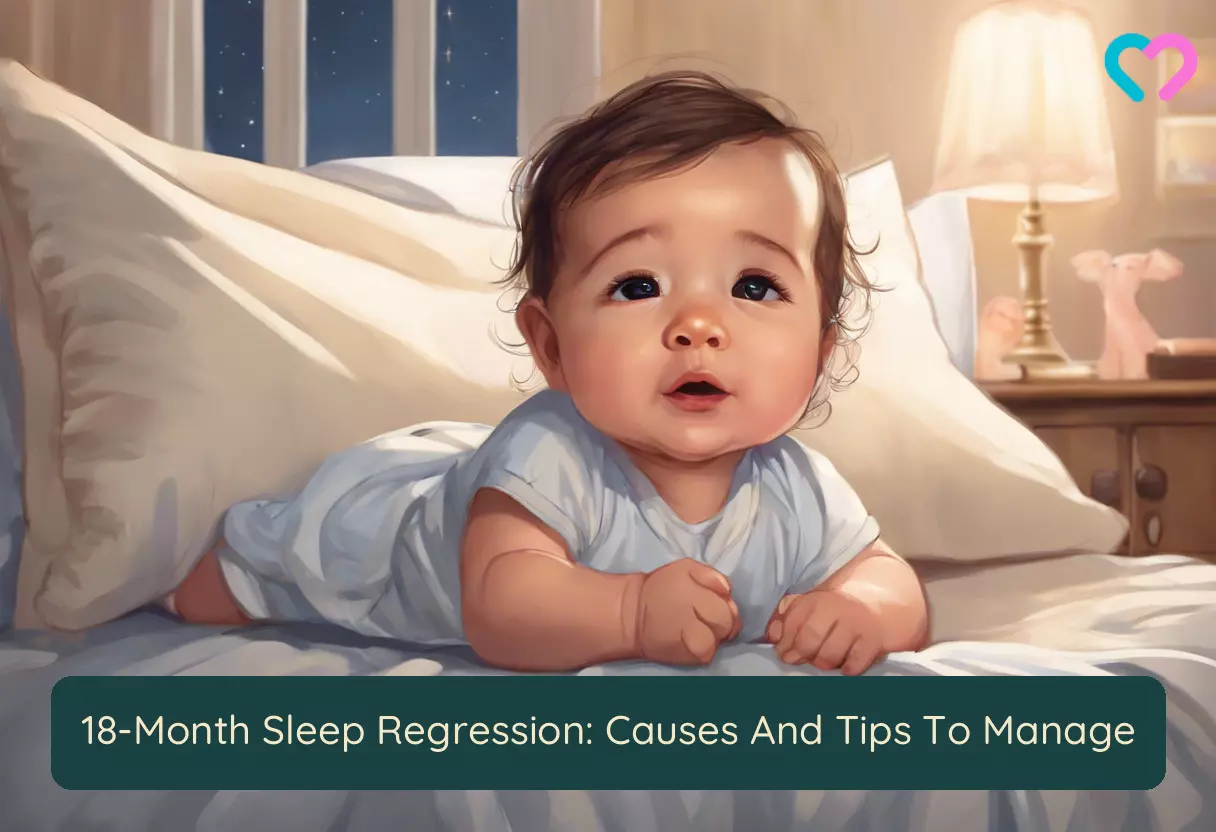
Image: Stable Diffusion/MomJunction Design Team
Having trouble with your toddler’s sleep? Check out this video for tips on how to manage 18-month sleep regression. Get the help you need to get your little one sleeping better!
Personal Experience: Source
MomJunction articles include first-hand experiences to provide you with better insights through real-life narratives. Here are the sources of personal accounts referenced in this article.
i. How we survived the 18-month sleep regression;https://littlebluesailboat.blogspot.com/2015/11/how-we-survived-18-month-sleep.html
References
1. 18-Month Sleep Regression; Sleep Foundation
2. Infant Sleep; Stanford’s Children Health
3. How Much Sleep Do Babies and Kids Need?; Sleep Foundation
4. The Toddler (18-ish) Month Regression: What is it and what can be done about it?;; Baby Sleep Science; Sleep Resource Center
5. Where We Stand: Screen Time; American Academy of Pediatrics
6. Ayten Bilgin and Dieter Wolke; Parental use of ‘cry it out’ in infants: no adverse effects on attachment and behavioural development at 18 months; (2020); Journal of Child Psychology and Psychiatry
7. 4-Month Sleep Regression; Sleep Foundation
9. How Much Sleep Do Babies and Kids Need?; Sleep Foundation
11. Getting your baby to sleep through the night: The good (and maybe not-so-good) news; Harvard Health
11. My Toddler Isn’t Sleeping Through the Night; University of Utah Health
Community Experiences
Join the conversation and become a part of our nurturing community! Share your stories, experiences, and insights to connect with fellow parents.
Read full bio of Dr. Mubina Agboatwalla
Read full bio of Dr Bisny T. Joseph
Read full bio of Rohit Garoo
Read full bio of Shinta Liz Sunny





